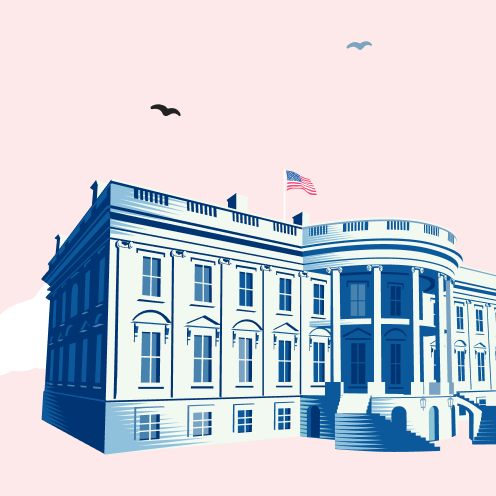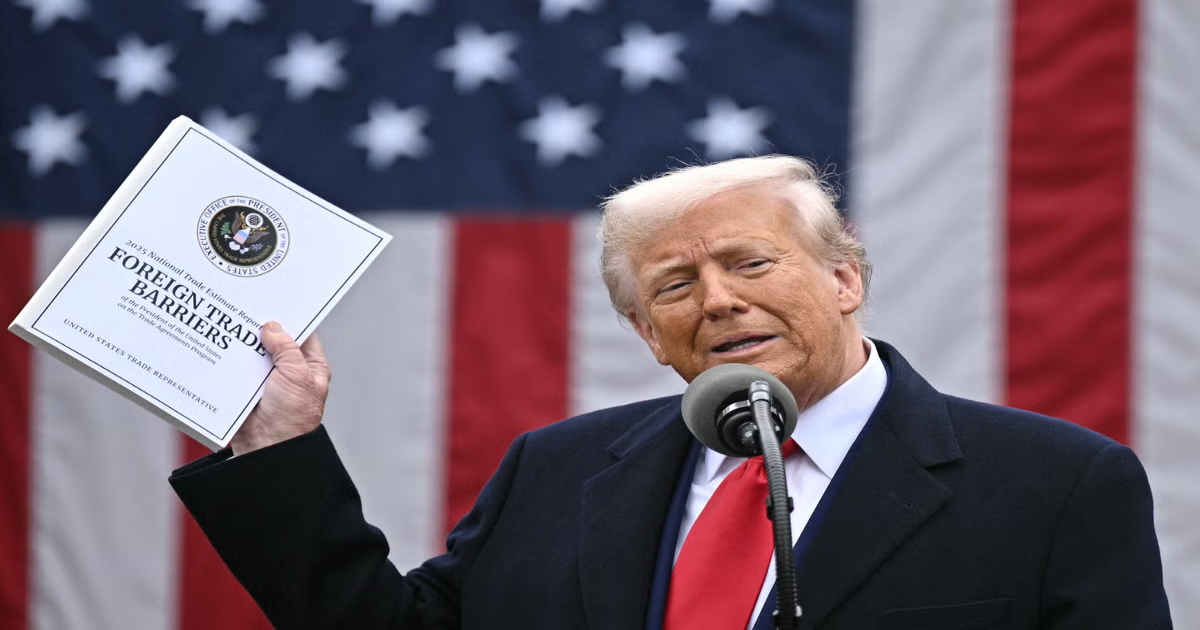
Futures indexes tied to the three main American stock markets were all trading down on Wednesday evening, as investors braced for the impacts of the sweeping worldwide tariffs Donald Trump announced earlier in the day.
As of 6:30pm Eastern time, Dow futures contracts were down 2.43 percent, S&P 500 contracts were down 3.60 percent, and Nasdaq futures were down 4.46 percent.
The outlook of these futures contracts, which are based on the anticipated movement of the major stock indices, stood in contrast to trading activity on the major exchanges earlier Wednesday.
There, the big three indices were all trading up modestly by less than one percent by the closing bell.
Shortly after the markets closed for regular trading, Trump rolled out his unprecedented tariffs package on Wednesday evening at an event in the White House Rose Garden, proclaiming the moment marked America’s “Liberation Day.”
At the ceremony, the president laid out his plans to initiate 25 percent tariffs on imported autos, 10 percent “baseline” tariffs on all imports, and varied double-digit reciprocal tariffs on nations and U.S. allies the White House argues unfairly tariff U.S. exports or otherwise constrain trade relations.

Investors had mixed reaction to Trump’s tariff plans, with major markets closing up, but futures declining (REUTERS)
“Jobs and factories will come roaring back into our country, and you see it happening already,” Trump said at the event. “We will supercharge our domestic industrial base. We will pry open foreign markets and break down foreign trade barriers, and ultimately, more production at home will mean stronger competition and lower prices for consumers. This will be, indeed, the golden age of America.”
During the event, Trump falsely claimed that under the tariff regime, which excludes Canada and Mexico for now, “foreign nations” would “finally be asked to pay for the privilege of access to our market, the biggest market in the world,” even though it is American companies which pay duties to the U.S. government when tariffs are imposed.
Trump declares Great Depression wouldn’t have happened with tariffs
Investors have long been nervous over Trump’s tariff plans, and most mainstream economists say tariffs are effectively paid by consumers because importing companies pass on the extra costs.
Wall Street bank Goldman Sachs now estimates there’s a 35 percent chance of a recession in the next 12 months, citing “the sharp recent deterioration in household and business confidence, and statements from White House officials indicating greater willingness to tolerate near-term economic weakness in pursuit of their policies,” the Wall Street stalwart wrote in a recent research note.
